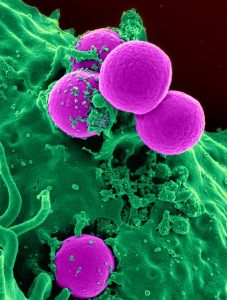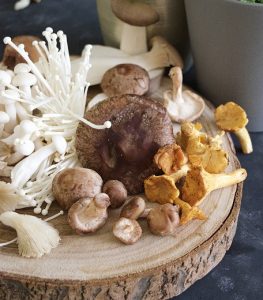 Ever noticed how the onset of winter weather tends to increase the frequency of illness? While weather does play a role, it is not the direct cause. Rather, place blame on the true culprits causing your illness, for example rhinovirus (common cold) and influenza virus (flu).
Ever noticed how the onset of winter weather tends to increase the frequency of illness? While weather does play a role, it is not the direct cause. Rather, place blame on the true culprits causing your illness, for example rhinovirus (common cold) and influenza virus (flu).
The connection between winter and illness
The connection lies in the fact that cold, dry weather is the preferred environment for pathogens to replicate and thrive. Consequently, your body is exposed to more germs during winter. Aside from heading south when temperatures drop, your next best bet is to prepare for battle. Fortunately, with the right support, your body is equipped with a highly efficient immune system.
Your immune system in a nut shell
 This defense system is composed of many specialized cells, which are generally referred to as white blood cells. The first responsibility of immune cells is to recognize foreign pathogens in your body. Once recognized, the next step is to destroy them. Finally, your immune cells memorize the pathogen in order to destroy it quickly upon the next exposure. Coordinating this effort is a full time job, requiring immune cells to function at the top of their game.
This defense system is composed of many specialized cells, which are generally referred to as white blood cells. The first responsibility of immune cells is to recognize foreign pathogens in your body. Once recognized, the next step is to destroy them. Finally, your immune cells memorize the pathogen in order to destroy it quickly upon the next exposure. Coordinating this effort is a full time job, requiring immune cells to function at the top of their game.
Support your hard working immune system
Support for your immune system includes everything from diet, to physical activity, to hygiene. Here are a few suggestions on what you can do and why it works.
- Eat or consume foods high in vitamin D which helps your immune cells recognize unwanted bacteria:

- Considerable controversy exists among health professionals regarding the definition of vitamin D deficiency.
- Consult with your provider for information specific to you.
- Eat 3 ounces of fish, 1 – 3 times a week.
- Fish such as salmon, herring, tuna, and trout are good sources of dietary vitamin D .
- Incorporate mushrooms into your diet.

- Mushrooms are a great source of vitamin D and phytochemicals, both of which support your immune system.
- Try adding mushrooms to soups, sauces, and casseroles. The water in these dishes extracts the phytochemicals found in mushrooms such as button, oyster and shiitake.
- Other good sources of vitamin D include fortified dairy milk, plant-based milk or juices.
- Move your body:
- Short bouts (15 minutes) of moderate intensity exercise help boost immune function.
- Moderate intensity means you are breathing harder than normal but can still talk.
- Early to bed, later to rise.
- During sleep, the body not only produces immune cells, but also enhances existing cells’ ability to quickly respond to disease causing microorganisms known as pathogens.
- Aim for 7 – 9 hours, when you are feeling well.
- Feed gut microbes with fiber.
- Complex carbohydrates such as those found in lentils, beans, barley, and oats (to name a few) feed the bacteria in your gut.
- Gut microbes convert complex carbs to short chain fatty acids which, once absorbed, help immune cells recognize and destroy pathogens.
- Plus, short chain fatty acids strengthen the epithelial cells lining your intestine, thus improving your natural barrier to pathogens.
- Wash your hands frequently.
- The best defense starts externally.

- Prevent the introduction of pathogens into your mouth or nose by washing hands often.
- The best defense starts externally.
- If all else fails, rest, recover, hydrate and stay warm.
- Contrary to human tendency, when you begin to feel ill, the quickest route to recovery means taking some down time, no matter how busy you are.

